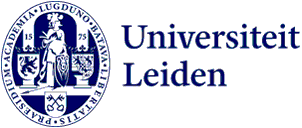Another successful collaboration between Leiden Law School and LUMC
Researchers from Leiden Law School and the LUMC have received a grant for a joint research project. They will be looking into ways in which caregivers and patients can work together to come to a better decision.
A team of researchers from Leiden University, comprised of lead applicant Niels Chavannes (LUMC), Mirjam Sombroek-van Doorn (health law), Tycho de Graaf (civil law), and Eduard Fosch Villaronga (eLaw), will be conducting research into risk management of heart and vascular diseases in primary care. The LLS-LUMC collaboration demonstrates Leiden University’s ability to effectively combine healthcare, ethics, design, and law.
Health care services are digitalising at a high pace. COVID played an important role, but especially the developments in artificial intelligence (AI) are having a profound impact on health care. These changes in health care also lead to questions, often of a legal or ethical nature.
This project will address the way in which caregivers, most often doctors, and patients can work together to come to better decisions. Shared decision making has become an important topic in health law. The principle of joint decision making between caregiver and patient was added to the Dutch Civil Code (BW) in 2020. The so-called Clinical Decision Support Systems (CDSS) are an AI-driven tool that should be able to assist with this process.
Designing and implementing such a tool leads to many legal and ethical questions such as the responsibility and accountability for mistakes that are made and, worst-case scenario, could have lethal consequences. Or other unexpected outcomes as a result from, for instance, unintentional discrimination.
Important role
The research project will focus predominantly on risk management of heart and vascular diseases in primary care. By integrating care, ethics, design and law, the researchers would like to identify and analyse the possible options of this AI-CDSS tool in order to make recommendations for improving the system. General Practitioners and various patient groups play an important role in this project since the goal is to improve the doctor-patient relationship.
The ZonMW committee that evaluated the application praised the innovative character of the project. According to the committee, the issue is also very topical, has been explained clearly and is of great relevance to society. Besides, the end users, such as patients and stakeholders, have been actively involved in the application process and they will play an important role in the project.
ZonMW, Clinical DECIsion support system voor het carDiovasculaire risico managEment in de eerstelijnsgezondheidszorg: een Verantwoordelijk- en Aansprakelijkheidsperspectief (DECIDE-VerA).
